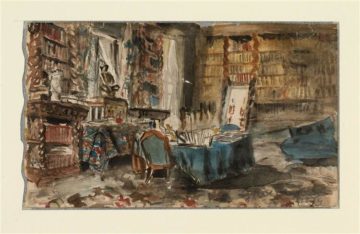John Rodden in American Purpose:
 The end of 2021 witnessed an unusual literary event: the bicentennials of two geniuses of modern fiction. They were arguably the leading novelists of their respective countries: the Russian Fyodor Dostoevsky (November 11) and the Frenchman Gustave Flaubert (December 12). No conclusive biographical evidence exists that Dostoevsky ever read Madame Bovary (1857) or anything else by Flaubert. The reverse is certainly true: Flaubert knew no Russian, while Dostoevsky was little known in France until after he died in 1881, a year after Flaubert’s own death.
The end of 2021 witnessed an unusual literary event: the bicentennials of two geniuses of modern fiction. They were arguably the leading novelists of their respective countries: the Russian Fyodor Dostoevsky (November 11) and the Frenchman Gustave Flaubert (December 12). No conclusive biographical evidence exists that Dostoevsky ever read Madame Bovary (1857) or anything else by Flaubert. The reverse is certainly true: Flaubert knew no Russian, while Dostoevsky was little known in France until after he died in 1881, a year after Flaubert’s own death.
Still, the coincidence of the bicentennial anniversaries of their births provides an occasion to explore the fascinating similarities between the two writers within the enormous continent of their differences. Otherwise, no one would ever think to pair two authors so dissimilar as the punctilious, perfectionistic exemplar of French prose and the chaotic, disordered genius of the Russian novel. Indeed: not even the recent passing of their dual bicentennial prompted scholarly reflection on their resemblances and dissimilitudes, which says as much about academic overspecialization as it does about the two authors.
More here.
